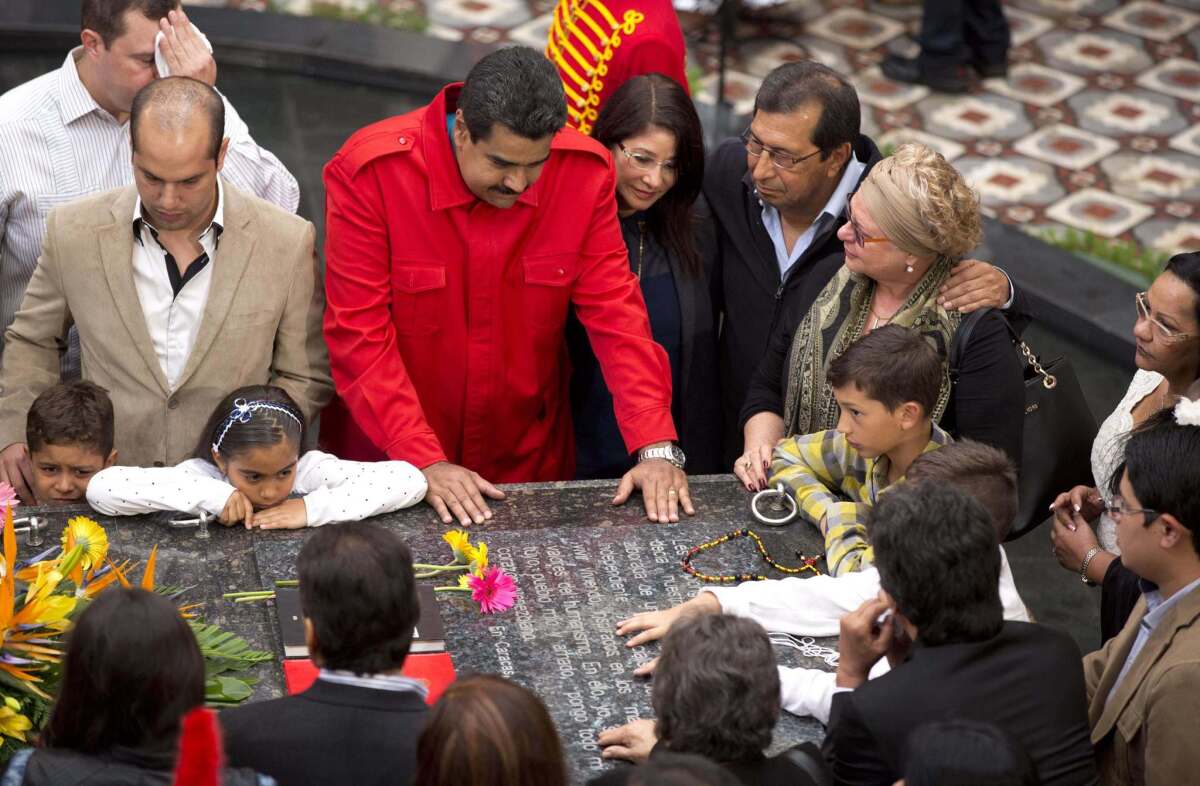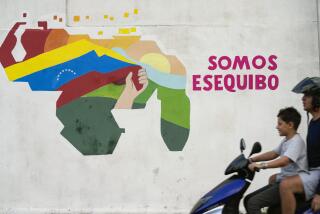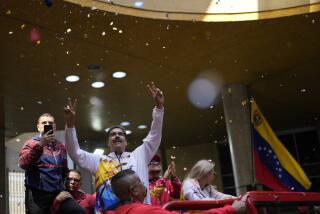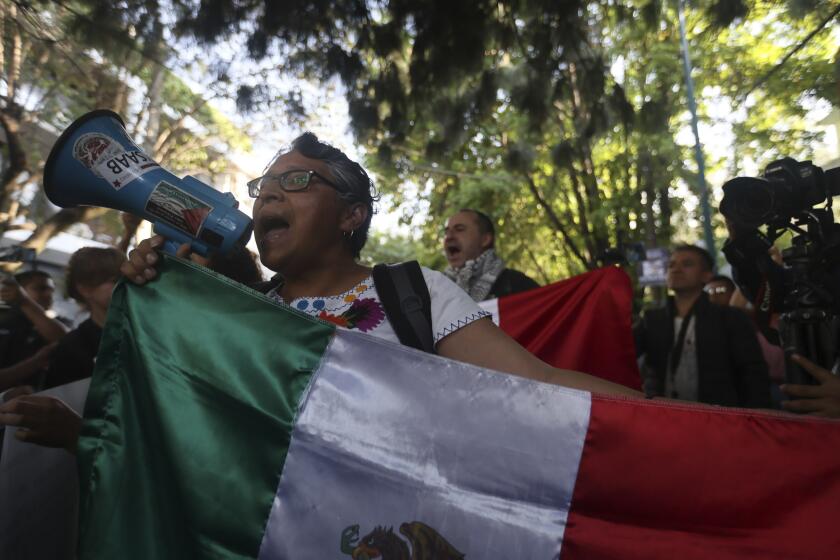Venezuela commemorates Hugo Chavez amid economic and other woes

Venezuela on Thursday marked the second anniversary of former President Hugo Chavez’s death, with the socialist government under increasing fire from international human rights organizations and analysts who say the ailing economy is in the grips of hyperinflation.
The observance included President Nicolas Maduro addressing thousands of followers at an “anti-imperialism” rally in central Caracas.
“We have to defend against an overthrow, struggle against imperialism, stop those who would detain the construction of the fatherland,” Maduro told the gathering. “We can’t permit an April 11,” he said, referring to the short-lived 2002 coup against Chavez.
Mourners gathered later at the military museum where Chavez’s tomb is located. Chavez died March 5, 2013, of abdominal cancer and Maduro was elected a month later to succeed him.
Maduro has accused the U.S. of trying to orchestrate an overthrow of his government. Officials this week ordered the U.S. Embassy to trim its staff to 17 from more than 100 and said that all American visitors would henceforth require visas.
Observers said Maduro’s criticism of the United States is a means of distracting Venezuelans from a collapsing economy, which is expected to shrink between 6% and 7% this year amid growing scarcities of basic food items, triple-digit inflation and ongoing devaluation of the currency, the bolivar.
Alejandro Grisanti, head of Barclays Capital’s Latin America economics research in New York, said the inflation rate for 2015 could exceed 200% if current trends continue. “The deterioration of the economy is happening at a faster rate than we expected,” Grisanti said in a telephone interview.
The value of the bolivar continues to decline at black market exchange houses despite the government’s announcement last month that it would make dollars available at a variable rate approximating the unofficial rate in some banks and currency exchange houses.
But Venezuela’s central bank on Thursday canceled a scheduled auction of dollars without giving a reason. The government is known to be short on dollars because of the sharp decline in recent months of the price of oil, exports of which account for 97% of the country’s foreign trade.
On Thursday, dollars sold on the black market for as much as 280 bolivars, up from 180 a week ago, a sign of increasing desperation among Venezuelans seeking them for travel abroad, business transactions or as a haven.
Grisanti said Barclays expects Venezuela to make payments on its international debt this year, even though sinking prices of Venezuelan bonds indicates investors believe there is a “high probability” the country will default.
Also Thursday, the United Nations high commissioner for human rights, Zeid Raad Hussein, criticized Maduro for authorizing the use of firearms against protesters and said that human rights in Venezuela were under siege.
“I continue to be very concerned with the human rights situation in Venezuela, particularly the harsh response of the government to critics and peaceful expressions of dissent,” Hussein said in his annual report on global human rights.
Hussein also criticized the Maduro government for “intimidation and public campaigns” against human rights defenders.
A judge in the central state of Aragua on Wednesday sentenced two university students to eight years in prison for participating in protests last year against the government. Both have been in jail since protests erupted a year ago in response to rising crime and the deteriorating economy.
One of those convicted, Raul Emilio Baduel, is the son of Raul Baduel, a former Chavez army comrade and defense minister who is also in jail. The senior Baduel, who was arrested in 2009 on corruption charges, insists he’s guilty only of opposing Chavez.
Jason Marczak, deputy director of Atlantic Council, a foreign policy think tank in Washington, said blaming the U.S. for the country’s problems is “stealing an act out of a tired playbook.”
Special correspondents Mogollon and Kraul are based in Caracas and Bogota, Colombia, respectively.
More to Read
Start your day right
Sign up for Essential California for news, features and recommendations from the L.A. Times and beyond in your inbox six days a week.
You may occasionally receive promotional content from the Los Angeles Times.






